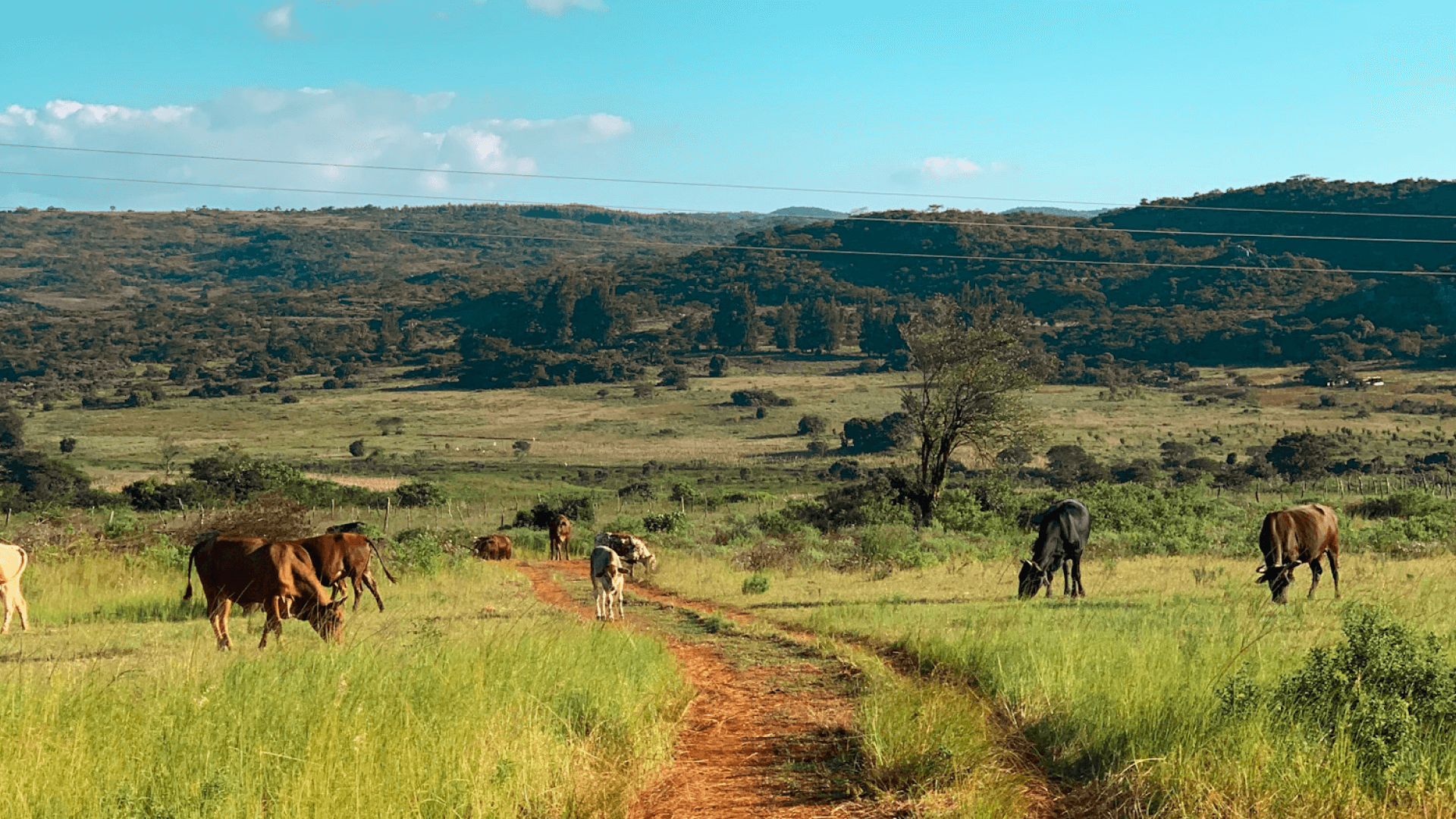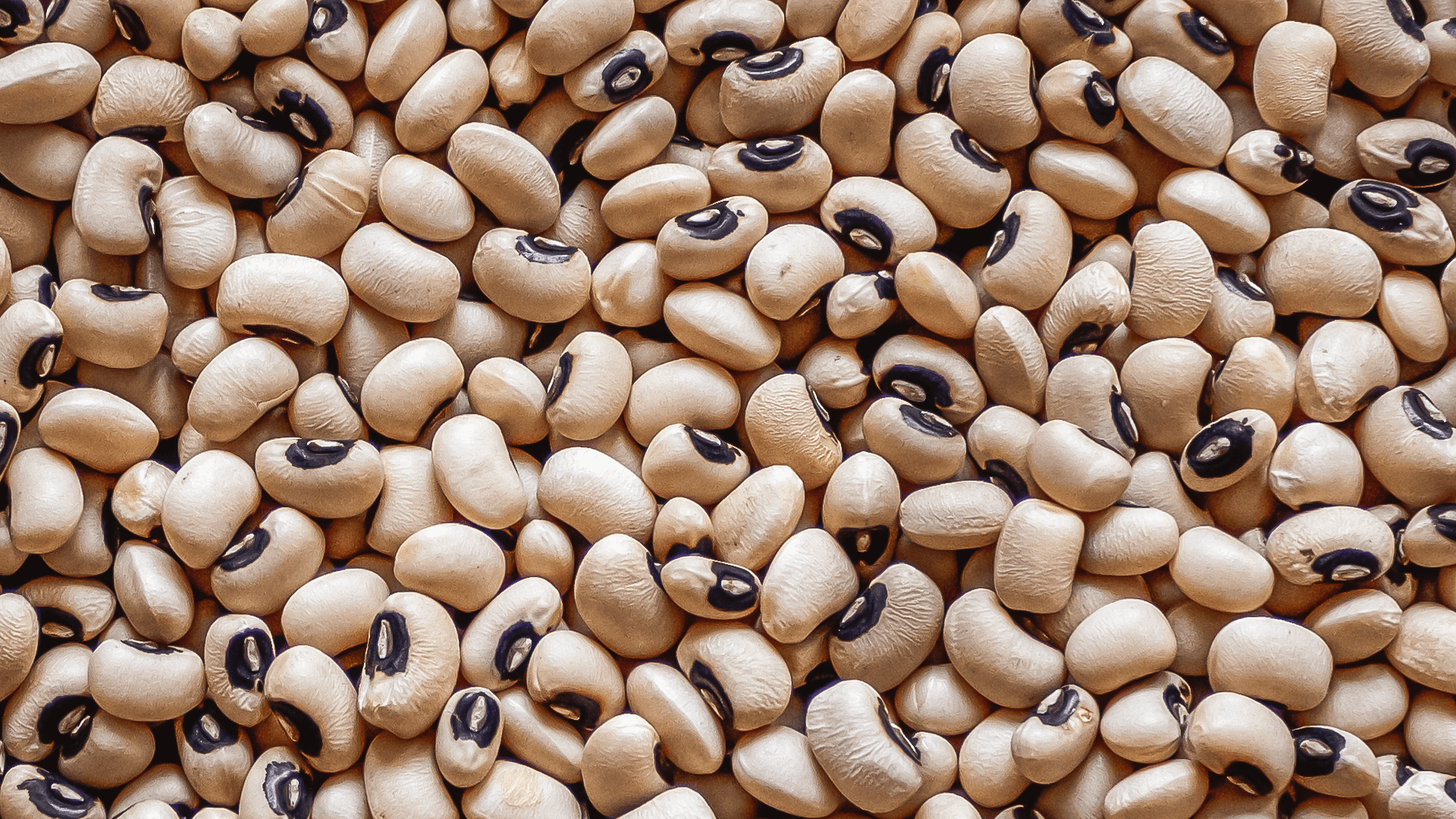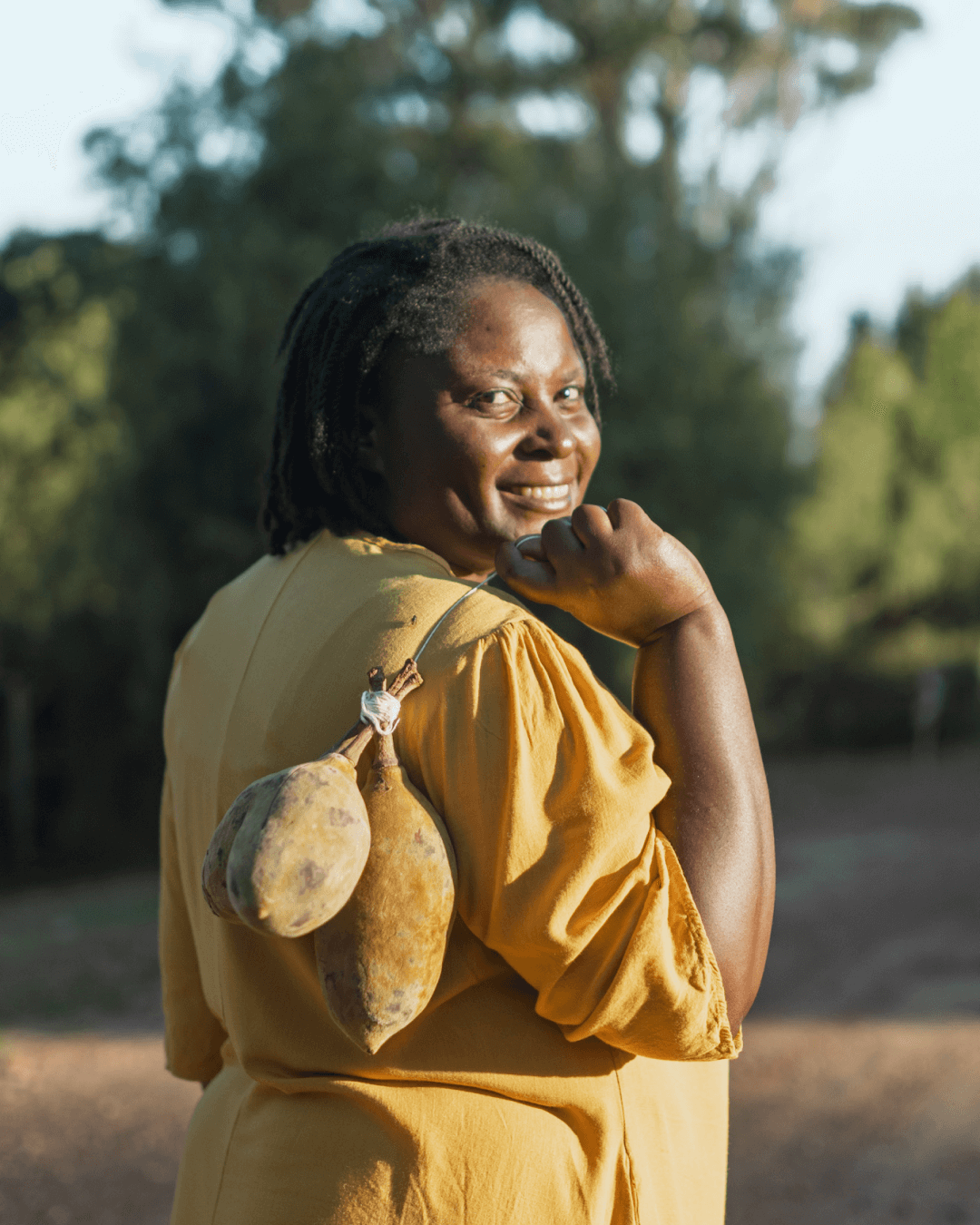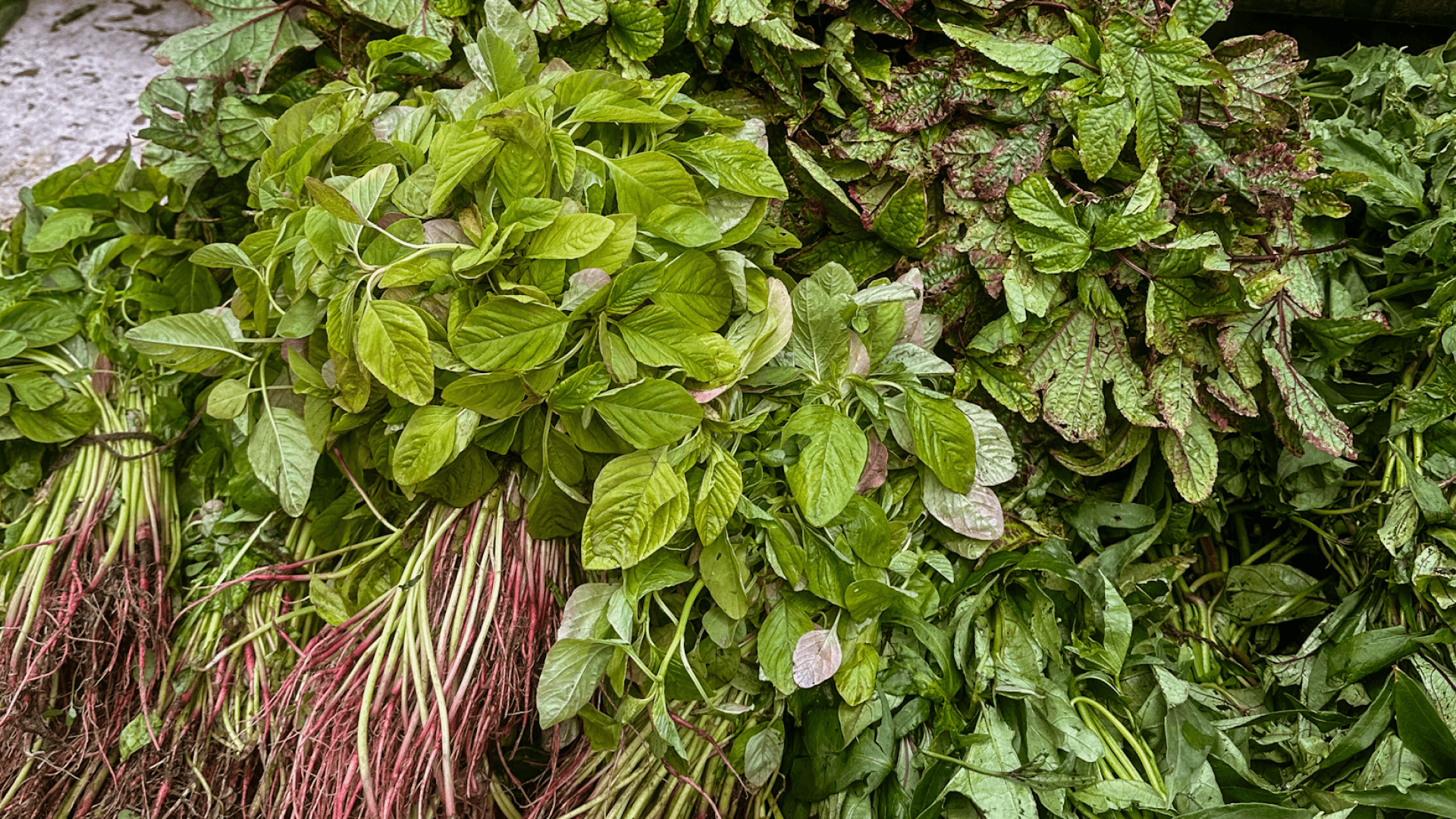Once upon a time, there was a land called Alkebulan, meaning “Mother of Mankind”, where people lived in harmony with nature.
These people were hunters and gatherers, moving with the rhythms of the earth, following the seasons in search of food, water, and the perfect climate. Their diet came from the land itself: wild fruits, nuts, roots, tubers, hunted meat, and herbs, which was also medicine.
The Bantu migration
But then came a great movement; one of the most significant in history. Between 1000 BCE and 1700 CE, the Bantu-speaking people left their homelands in West and Central Africa and journeyed across the vast landscapes of Sub-Saharan Africa. With them, they carried knowledge; the secrets of agriculture and ironworking. They planted millet and sorghum in the fertile earth, nurtured yams in the warmth of the sun, and later, with the arrival of trade, introduced bananas that flourished in their new homes. Their hands shaped the land, and in return, the land provided.
As they moved, they shared seeds and traditions. They exchanged ways of cooking, preserving, and preparing food, blending cultures through flavours and techniques. Villages grew into thriving communities, and food became a thread that wove families together, a sacred bond between the people and the land.
Then the world changed.
Modernisation and the loss of connection
Explorers came, and with them, colonisation. The land once called Alkebulan was renamed Africa. The harmony between people and their food began to shift. The transatlantic slave trade tore families apart, carrying men, women, and children across oceans. But even in exile, they clung to their food traditions. They planted okra in new soil, stewed cowpeas with the same care their ancestors once did, and found solace in the familiar warmth of a pot of sorghum.
As time passed, many of these traditional foods began to fade due to modernisation and loss of knowledge. Knowledge was not written down in books but passed through stories, told by firesides, in the rhythm of grinding grains, and in the songs sung while harvesting. For them, food was a language, history, and medicine.
Modernisation brought convenience, but at a cost. The young ones left, drawn to places where food came wrapped in plastic, and where stories were told not by elders but by glowing screens. The fields grew silent. The land, once alive with hands that nurtured it, stood lonely, waiting for the return of those who once understood its whispers.
But now, the young ones are slowly returning.
Knowledge was not written down in books but passed through stories, told by firesides, in the rhythm of grinding grains, and in the songs sung while harvesting. – Imizi Food
Returning to roots
Despite the years of distance, despite the disconnect, there are those who refuse to let this legacy disappear. Across the world, a food movement is rising, one that seeks to reconnect people with the land, to honour the wisdom of the past, and to preserve the culinary traditions of Alkebulan.
And in this story, there are two women, travellers on a shared path who have come together in their pursuit of the culinary legacy of Alkebulan.
Their journey is about identity, healing, and reclaiming a knowledge that was never meant to be forgotten.
This is their story.
Meet Livhuwani: Rediscovering the healing power of food
In 2004, my family immigrated from home, a journey that meant leaving behind not only the land of our ancestors but also the diet that our DNA understood. The food that had been passed down through generations, not in cookbooks, but through hands stirring pots and voices telling stories, became a distant memory. As a child, the new diet was an exciting adventure: brightly packaged, sweet, and unfamiliar. But excitement soon gave way to discomfort. Allergies, sensitivities, and countless hospital visits. My body rejected what it did not know.
My quest for healing through food was not born out of nostalgia, but out of sheer frustration. I didn’t know why I believed food had the power to heal, but something deep inside me, perhaps an ancestral whisper told me it did. The Venda people, my people, have always believed that food nourishes not just the body, but also the spirit. It was a truth I had to rediscover for myself.
Before we moved from South Africa, I had grown up on food that was alive. Sweet potatoes dug fresh from the ground, corn turned into sour, starchy pap bowls, wild indigenous greens that grew freely, sorghum porridge that filled our mornings. My parents planted what we ate, they understood the importance of real food from knowledge passed down from their parents and grandparents.
For years, I had tried to heal using Western foods, overlooking the very ingredients that had sustained my lineage for centuries. When I started looking back to my roots, I realised that much of this knowledge was disappearing. There was little to no information available on the internet. What had once been passed down so effortlessly through storytelling was now fading into obscurity.
I didn’t know why I believed food had the power to heal, but something deep inside me, perhaps an ancestral whisper told me it did. – Livhuwani
And so, I began a journey of rediscovery, not just for myself, but for the generations to come. My first stop was my grandmother’s house. Sitting under her wisdom, I listened as she spoke of foods that could cleanse, strengthen, and heal. My grandparents connected with the land in a way that I can only dream of. They knew the seasons, the rhythms, and the ways in which food could be both nourishment and medicine.
Now, together with Jane, we document. We learn. We preserve using food creativity.
Meet Jane: Foraging for home in new lands
I left my home country at nine, and with every new place came the weight of unfamiliarity; new languages, faces, and a constant sense of displacement. But through it all, one thing remained: Food. The flavours of home, cooked by strangers in distant lands, would always remind me of where I came from and gave me a brief sense of belonging.
In 1994, everything changed. I lost my parents, and my three siblings and found ourselves in a refugee camp in the Democratic Republic of Congo. We were just children, left to navigate a world we barely understood. The camp was a place of survival, a place where loss lingered in the air. But even in that uncertainty, we had one thing left, each other.
I became the cook for my siblings, though I had never cooked before. I had no recipes, no guidance, just memories. I closed my eyes and pictured my mother in our family kitchen, her hands moving gracefully as she prepared meals from ingredients like sorghum and millet. Those memories became my teachers. Every meal I made was a thread connecting us to the life we had lost, an illusion of home in a place that felt nothing like it.
After passing through several countries, like Uganda and Kenya, we eventually arrived in Southern Africa. This time, it was different. I was farther from home than ever before, and for the first time, food did not feel like a connection, it felt like a loss. The flavours, the dishes, the familiar tastes that had once been my comfort were missing. Even in all the places I had lived before, there was always something that reminded me of home. But here, food was foreign, and I felt untethered.
Every meal I made was a thread connecting us to the life we had lost, an illusion of home in a place that felt nothing like it. – Jane Nshuti
Then, one day on our way to church, we came across a bush full of amaranth. No one seemed to eat it. People walked past it daily, unaware of its richness, its history, its value. But for us, it was a gift. Without hesitation, we stepped into the bush and started foraging. Passersby looked at us with curiosity, perhaps even confusion. But we didn’t care. At that moment, we weren’t just gathering leaves, we were gathering pieces of home.
As I spent more time in South Africa, I began to understand that the problem wasn’t the absence of the foods I had grown up with. The problem was that they had been forgotten. With time, people had become disconnected from them. And so, I made it my mission to educate people about African food.
What now? The global food movement
The world, after years of detachment from the roots of food and tradition, is beginning to listen again. The young ones, like ourselves, now grown, find themselves yearning for the flavours of their childhood, the nourishment that once filled their ancestors’ bowls. But this journey is not just for those of us reconnecting with our own roots, it is for everyone who values real food, sustainability, and the stories behind what we eat.
The modern world, with all its conveniences, has left many of us feeling unfulfilled, unwell, and disconnected. In the search for wellness, many are beginning to look back, back to the land, back to the wisdom that was nearly lost. This movement is not exclusive; it is an open invitation to all of us; chefs, home cooks, restaurants, and food lovers of all backgrounds to explore, appreciate, and incorporate these time-honoured traditions into their kitchens and communities.
Because going back to basics is not just about food, it’s about giving the next generation a foundation they can stand on. In a world where fast food and quick fixes dominate, we must remember that true nourishment comes from the soil, from our hands, from the wisdom of those who came before us.
This movement is not exclusive; it is an open invitation to all of us; chefs, home cooks, restaurants, and food lovers of all backgrounds. – Liv, Imizi Food
The future lies in remembering, in reviving, in reconnecting. By documenting the practices, ingredients, and techniques once passed down, we ensure that the next generation has a starting point. They will not have to search in the dark for knowledge that was once abundant. Instead, they will inherit a map, one that leads back to the land, back to themselves.
This is our story, it belongs to all of us.







This article is a powerful tribute to the connection between food, identity, and healing. It’s inspiring to see how Livhuwani and Jane are reclaiming and preserving their ancestral culinary heritage while also raising awareness about sustainability and wellness. Their stories remind us of the deep wisdom in traditional foods and the need to document and honor these practices for future generations. It’s a call for all of us to reconnect with the land and value the nourishment that comes from our roots. Thank you for sharing this important message!
What an amazing narrative. True and factual.
We all can relate to nature. GOD STRATEGICALLY PLACED US TO ENVIRONMENTS RELEVANT TO OUR BIOLOGICAL/ NATURAL NEEDS.
May the good Lord bless both of you, reading through the intro above it has reminded me of good old days where food was given time to cook and the aroma of it will make one to enjoy.
I’m happy for both of you.
A wonderful read and l wish you a fruitful journey together and hips of success!
Congratulations
Now this is authentic!wish you a fruitful journey together and hips of success!
Congratulations